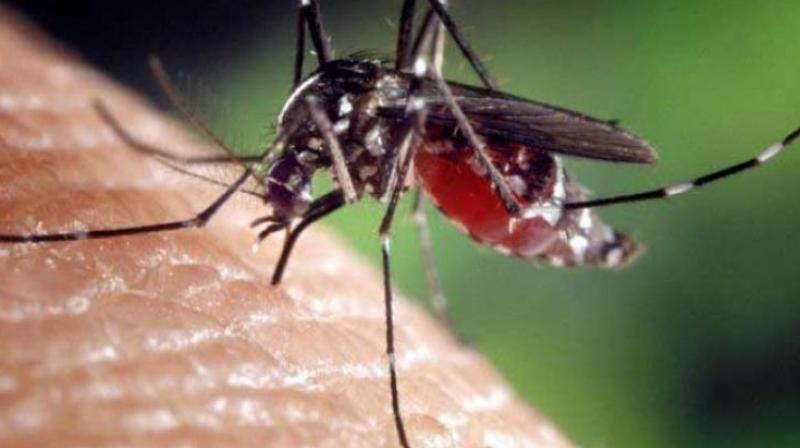Discovery of malaria parasite survival genes offers new targets for vaccine

London: Scientists have identified the core genes that are essential for the deadliest malaria parasite to survive, revealing new targets for drugs or vaccines to fight the potentially deadly disease they cause in people.
Using new genomic techniques to analyse the parasite’s genes, researchers from Britain’s Wellcome Sanger Institute and the University of South Florida (USF) were able to determine which ones are indispensable.
Latest World Health Organization (WHO) data show that 216 million people were infected last year with the malaria parasite, which is transmitted by blood-sucking Anopheles mosquitoes. Nearly half a million people - most of them babies and children in Africa - died from the disease in 2016.
One type of the malaria parasite, known as Plasmodium falciparum, or P. Falciparum, causes half of all malaria cases and around 90 percent of the deaths.
The Sanger and USF researchers, whose work was published in the journal Science on Thursday, analysed almost every one of this parasite’s 5,400 genes.
They used a specialised technique called piggyBac-transposon insertional mutagenesis to inactivate genes at random, and then developed new DNA sequencing technology to identify which genes were affected. Their results showed that around half the parasite’s genes - more than 2,600 - were essential for it to grow in red blood cells.
“Using our genetic analysis tools, we (were) able to determine the relative importance of each gene for parasite survival,” said John Adams, a specialist in global health and infectious disease research at USF.
Malaria is a treatable disease if it is caught early, but current antimalarial drugs are failing in many areas due to increasing drug resistance.
“We need new drug targets against malaria now more than ever,” said Julian Rayner, a Sanger expert who co-led the research. “This gives a list of 2,680 essential genes that researchers can prioritise as promising possible drug targets.”

